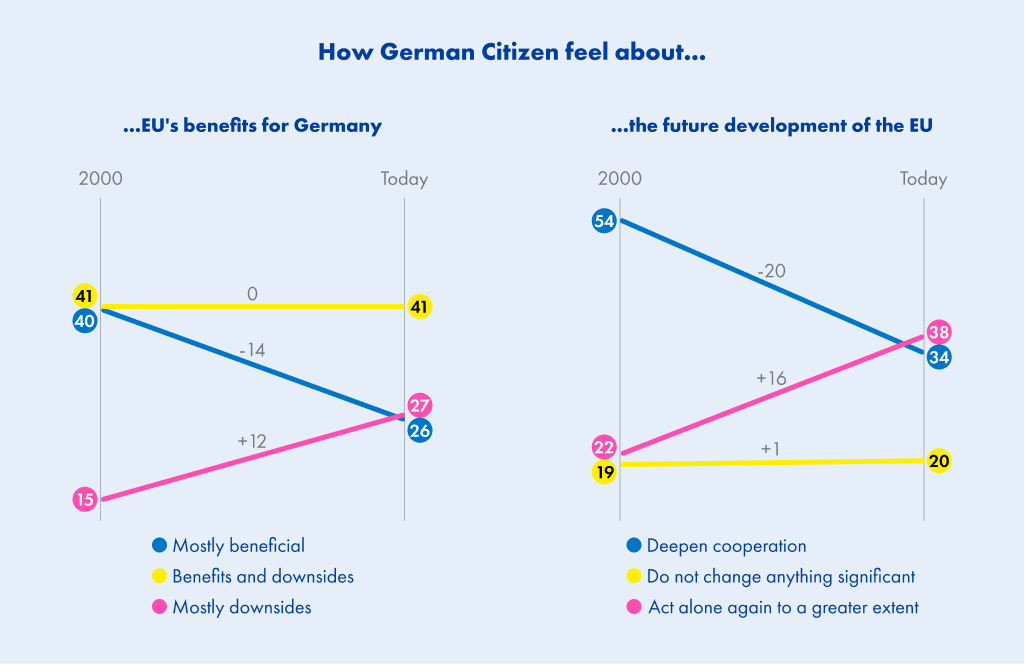Issue #132
Guten Morgen! What a week, folks! Everyone in Berlin and Brussels is feeling the time crunch as the legislative Summer Break is right around the corner. No cocktails by the pool yet though – we’re back with another Krautshell edition. This time, check out our main articles to learn about Germany’s attempts to become more transparent, Poland’s plans to create a Parliamentary Naughty Corner, and the EU’s fresh-off-the-press deal on migration. Finally, check out Anna’s WOOM to read about a Greens’ dilemma. Happy reading and bis bald! Anna Szilvia The Church Still Doesn’t Have to Register – and Other Lobby-Related Drama As of 2022, the German Bundestag operates a mandatory lobby transparency register for all those who take up contact with the Bundestag and, up to a certain level, the Federal Ministries. This week, the German cabinet is discussing an amendment to the Lobbyregister-Act. What’s changing? Why is it important? We’ve got you covered. In general, Germany hasn’t always received the best report card when it comes to transparency in legislative influence, campaign financing, and revolving-door policies, but after a politician-took-money-from-company-to-lobby-for-it scandal was made public back in 2020, a mandatory transparency procedure was, as the Germans say, unabdingbar (transl.: unavoidable).** For the first time, anyone influencing the German legislative process had to disclose their identity, annual expenditures on lobbying, and memberships in associations. Except if you’re a church that is. Because for some reason the German state loves taking your money for the church tax but doesn’t require church lobbyists to register. But I digress. Already back in 2021, before the Lobbyregister-Act officially came into effect, the traffic light coalition agreed to further sharpen rules in this legislative period. This week, we got our hands on the current draft of the updated law and it’s definitely ruffled some feathers. In a [Kraut]shell: you will be required to disclose which pieces of legislation you are lobbying or if anyone in your organization has been a Member of the Bundestag or Government in the past five years. Furthermore, lobbyists will publicly have to share how much they receive for individual clients – previously only the lump-sum was disclosed. For transparent lobbyists: all reasonable. However, one valid complaint is the lack of reciprocity. While lobbyists spend significant effort to document their every move, politicians don’t have to play by the same rules. Either way, we still expect some changes to the law as the three governing parties still need to hash out their differences. *Quick side note: in case anyone was wondering, we at Erste Lesung always act with maximum transparency, even before the transparency register. We invite you to take a look at our Lobbyregister-Entry Polish Disciplinary Committee – Donald Tusk is PiSed off If you have been following the polish government’s relationship to the rule of law and liberal democracy, you might have noticed that they are not exactly in the honeymoon phase. Particularly right now. The ruling PiS party is facing general elections in autumn and currently losing ground to the opposition. As a response (unofficially, of course), PiS introduced of a law against Russian influence in Polish politics. Critics call the law the Lex-Tusk, referring to the leader of the most important opposition party, Donald Tusk. He was Prime Minister of Poland for seven years and also bought some gas from Russia, as did the PiS later. This law establishes a new Commission, made up of nine members, elected by the PiS-dominated parliament, which determines if somebody was acting in Russian interests. If so, sanctions can apply, including a ten-year ban from any public office. Pretty neat if you don’t like your opponents, right? Well, Poland’s allies were less thrilled. Brussels and Washington expressed their deep concern about these developments, and the EU even started a new infringement procedure against the Member State. Fueled by the pressure, the Polish President proposed changes, which have not been voted on yet. These proposals include that instead of sanctions, only statements about Russian influence on individuals will be published. In essence, the exclusion from public office might be replaced by public defamation. As a result, on Saturday, at Tusk’s behest, the biggest political demonstrations in decades took place. Half a million people rallied against the new law. Fittingly on the 34th Birthday of the breakthrough election that ended the communist regime in Poland. If the plan of the PiS will finally play out or just create backlash and galvanize the opposition, we will see in the elections in autumn. Stay tuned. Migration: the 13th Hour Italian Deal Back in February, we reported that EU Member States tried to quell the recent hefty flow of migrants into the EU with border fences. We told you we’d keep you updated, and unlike the Belgian Postal Service, we deliver. Late on Thursday, EU leaders were able to hash out an agreement to modernize Europe’s migration policy. This compromise will now form the basis for negotiations with the European Parliament. So, what was agreed upon? Right off the bat, it was the new “solidarity mechanism” that was making headlines. Under this compromise, countries in comparative “hot zones” for migrant arrivals, namely Greece, Malta, and Italy, have the guarantee that they can relocate at least 30,000 migrants per year to other Member States. On the flip side, if a Member State refuses to accept the migrants, it will pay 20,000 euros per person into a common EU fund to combat the causes behind mass migration. What’s more, countries will now have new procedures at the border to quickly sort out asylum applications that are inadmissible. Finally, instead of common EU rules, Member States will be able to independently determine whether a country is “safe” to return migrants to. Germany’s Foreign Minister Annalena Baerbock (Greens) was quick to voice her discontent with the compromise. For the German government, who has taken on a disproportionate number of asylum seekers, it was crucial the solidarity mechanism found its way into the agreement. However, this came at the cost of having to accept some concessions that lead to, as one German SPD politician put it, “difficult human rights standards.” At the end, it was the far-right Italian government that tipped the scales – mainly because the EU agreed to scale up its support for Tunisia, which is where many migrants depart from currently. When negotiations come up with a result, we’ll update you. DAMNED IF YOU DO, DAMNED IF YOU DON’T Immigration has always been a challenge for the European Union, and the Member States have been working on a solution since the migration crisis in 2015. Now, they have reached a compromise. Until now, the EU mostly used the Dublin procedure, which essentially states that migrants must stay and apply for asylum in the country where they first arrived in the EU (which does feel a bit unfair towards all the countries with external borders). Now, refugees from countries deemed ‘safe’ are to be held at the borders, with the aim of making a swift decision within 12 weeks on whether to send them back home. While I won’t attempt to assess the effectiveness of this new system, I can observe the uproar it’s causing within the Green Party. Already, half of the party leadership has come out against the compromise. The other half, though ultimately in favor, has voiced criticism but grudgingly acknowledged its necessity. I can’t help but think this was a meticulously orchestrated communication, designed to take the wind out of the sails of the Green Party’s base, given that the compromise fundamentally contradicts what the Greens have always advocated for. Critics now fear the emergence of inhumane camps at the EU’s external borders, similar to what we’ve already witnessed in Moria, Greece. However, the Green Party leadership must contend with the fear of another internal conflict. Once again, these lines of conflict are appearing not only within the government coalition, but also within the Green Party itself. Once more, they are confronted with the need to choose between political realism and the party’s inherent idealism. Issue #132


FIRST, SOME SOLID INTEL:
TAKE A BREAK, GIVE YOUR EYES A REST.
LONG STORY SHORT:
WHAT’S ON OUR MINDS:





